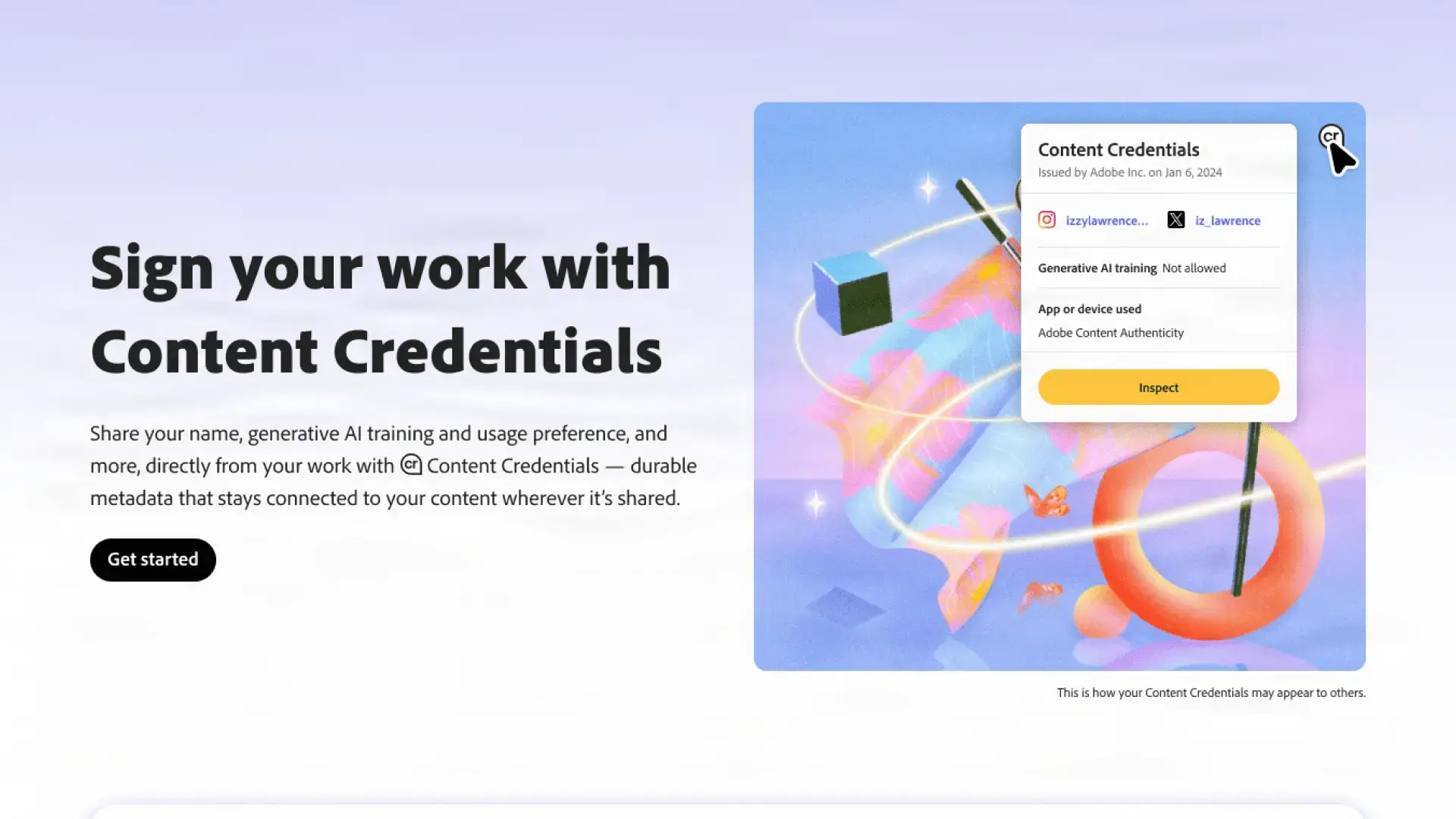
Adobe has announced a new free web application—the Adobe Content Authenticity web app—designed to empower creators by safeguarding their digital content and ensuring proper attribution.
The app aims to address growing concerns among creators regarding unauthorized use and misrepresentation of their work. You can join the waitlist now.
Modern tools for the modern creator
The Adobe Content Authenticity web app allows creators to attach Content Credentials to their digital work effortlessly. These credentials act like a "nutrition label" for digital content, embedding secure metadata that provides information about the creator and the history of the content's creation and editing processes. This is a significant step toward building a more transparent and trustworthy digital ecosystem within the ever-growing context of an AI-supported future.
Developed in close collaboration with creators, the web app integrates with popular Adobe Creative Cloud applications such as Photoshop, Lightroom, and Firefly. It is a centralized hub where creators can manage their Content Credentials preferences, providing a unified experience across different platforms.
 The Adobe Content Authenticity web app UI example #1
The Adobe Content Authenticity web app UI example #1
Addressing industry concerns
Recent Adobe studies highlight that 91% of creators are seeking reliable methods to attach attribution to their work, with over half expressing worries about their content being used to train generative AI models without consent.
The new web app addresses these concerns by offering features that allow creators to:
- Easily apply Content Credentials: Creators can batch-apply credentials to images, audio, and video files, including information like their name, website, and social media profiles. This helps protect their work from unauthorized use and ensures they receive proper recognition.
- Set generative AI training preferences: Adobe only trains its generative AI models, like Adobe Firefly, on content it has explicit permission to use. With the new app, creators can signal their preference not to have their content used by or to train other generative AI models, promoting industry-wide respect for creators' choices. It's worth noting any content that prevents Firefly AI training will also be excluded from submission to Adobe Stock.
- Inspect and recover Content Credentials: The introduction of the Content Authenticity extension for Google Chrome and the Inspect tool within the web app allows users to view and verify any associated Content Credentials, even if provenance information has been removed or the content has been altered.
Building a more trustworthy digital ecosystem
Scott Belsky, chief strategy officer and executive vice president of design and emerging products at Adobe, emphasized the company's dedication to the creative community: "By offering creators a simple, free, and easy way to attach Content Credentials to what they create, we are helping them preserve the integrity of their work while enabling a new era of transparency and trust online."
The durability of Content Credentials combines digital fingerprinting, invisible watermarking, and cryptographically signed metadata. This ensures that the credentials remain intact and verifiable throughout the content's lifecycle, even if the content is modified or screenshots are taken.
The Adobe Content Authenticity web app UI example #2
Industry collaboration and future availability
Adobe is actively working to promote industry-wide adoption of these practices. Spawning—an opt-out aggregator for generative AI—has already committed to recognizing creators' preferences set through the new web app.
A free public beta of the Adobe Content Authenticity web app is scheduled for release in Q1 2025. Additionally, the Content Authenticity extension for Google Chrome is available in beta starting today.
Adobe plans to showcase the new web app at Adobe MAX, the world's largest creativity conference, from October 14–16 in Miami Beach. Attendees can visit booth 424 for a hands-on preview.
tl;dr
- The Adobe Content Authenticity web app is designed to help creators protect their digital content and ensure proper attribution.
- The web app allows creators to attach Content Credentials to their digital work, providing information about the creator and the history of the content's creation and editing processes.
- It looks to address concerns about unauthorized use and misrepresentation of creators' work by offering features such as batch-applying credentials, setting generative AI training preferences, and inspecting and recovering Content Credentials.
- The web app is set to be released in Q1 2025, with a public beta scheduled for that time and the Content Authenticity extension for Google Chrome already available in beta.



Comments